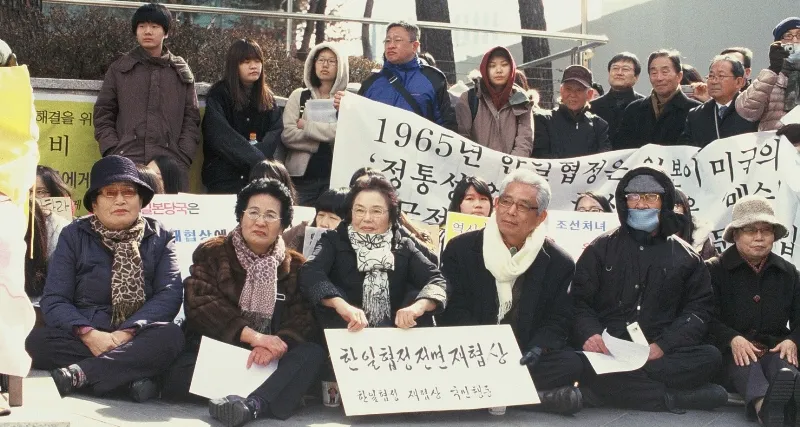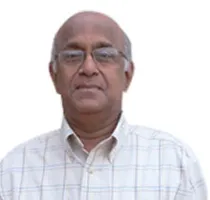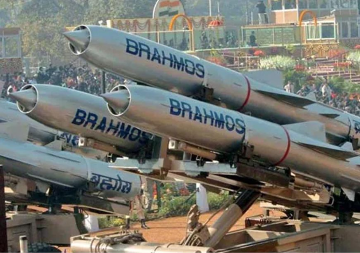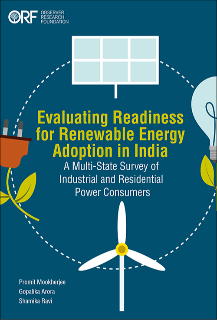With a landmark agreement reached between Japan and South Korea on the long pending issue concerning the comfort women, the two countries seem to have removed “finally and irreversibly” one of the most formidable obstacles to the conduct of their normal bilateral relations. The comfort women issue had generated a great deal of acrimony and bitterness in their relations for well over two decades. Yet in the midst of this murky situation, when Foreign Minister Fumio Kishida went to Seoul last week to conduct negotiations, there was an air of optimism in the atmosphere that some breakthrough could be round the corner.
Ever since Park Ching-hye took over as President, she had been pursuing a hardline diplomacy towards Japan. Unlike many of her predecessors, she downplayed the importance of Japan and she has so far not visited Japan even once to meet her Japanese counterpart. Diplomatically, Japan had always figured number two in the scale of Korean priorities. While she has retained the US as the most important country, she has virtually replaced Japan by bringing China to the second position. She visited China quite early during her tenure and that was reciprocated by Chinese President Xi Jin Ping’s visit to Seoul. She has signed a free trade agreement with China and Sino-ROK trade is more than the combined volumes of ROK-japan and ROK-US trade. Seoul was one of the earliest countries to join the Beijing sponsored Asian Infrastructure Development Bank (AIDB). Of all the allies, South Korea alone attended the 70
th anniversary of the defeat of Japan organized by China in Beijing. Tokyo and Seoul failed to finalise an agreement on Intelligence exchange even after it reached the final stage of signing. Very often both China and ROK joined together to criticize Japanese prewar aggression and even when President Xi was on an official visit South Korea, he spoke bitterly against Japanese pre-war militarism.
From the beginning, Park took a very stubborn position on the issue of comfort women and made it clear that until this issue was amicably settled, there could be no improvement of relations between the two countries. Concerned about the deteriorating relations between its two trusted allies- Japan and South Korea- the US tried hard to convince them about the need to work together in view of the deteriorating security situation in the East Asian region. Washington exhorted them to look beyond their colonial past and seriously address the regional security interests which had greatly deteriorated owing to the increasing territorial and maritime ambitions of China and the nuclear brinkmanship of North Korea. President Obama even arranged a meeting between Park and Abe in 2014 in Europe, but that did not help.
However, the China-Japan-ROK trilateral that met in Seoul after more than three years in November last year provided a rare meeting between Abe and Park. Both leaders had one-on-one meeting in which Park underlined the importance that her government attached to the comfort women issue. She also asserted that unless this issue was settled before the end of the year, there could be little prospects of normal ties between the two countries.
It became quite clear that Japan could no longer take its traditional position that the issue had been settled by the two countries when they signed the agreement in 1965 normalising their diplomatic relations. But successive Korean governments continued to raise this question. The then Japanese Foreign Minister Yohei Kono made a statement in 1993 owning the responsibility of the pre-war Japanese governments in recruiting and conducting the whole exercise. Subsequently, the Japanese Government set up the Asian Women’s Fund with help from the private sources to provide relief to the afflicted women. When Junichiro Koizumi became the prime minister, he wrote personal letters to all surviving comfort women expressing his apology. But subsequently during his first tenure, Prime Minister Abe took a very strong position stating that there was no truth that Japan had recruited Korean women for providing sex to Japanese military. Even the US Government criticised him for his stand.
But soon there was some evidence that he was softening his position on the issue. For one thing, many high US officials started expressing their disappointment at the way the two allies were conducting their relations. For another, since August 2015 when he delivered his well-publicised war statement , Abe has understood the intensity of the comfort women issue. Soon after the November summit, Abe tended to show a great deal of urgency in trying to settle the issue.
He not only promptly took follow up action after the November summit, he was also inclined to increase the volume of Japanese welfare fund to 1 billion Yen from the earlier proposed 100 million Yen.
The main points of the Kishida-Yun agreement are as follows: (a) The issue has been “fully and irreversibly” settled; (b) Japan will set up a welfare fund worth Y 1 billion and it will be managed by the South Korean government and (c) Japan has asked Seoul to relocate the statue of a young girl portrayed as representing the comfort women. It is located in the close vicinity of the Japanese Embassy in Seoul. The South Korean government has agreed to make efforts towards its relocation.
That President Park has also displayed considerable flexibility on the issue is clear from the strong support she has given to the agreement. In fact, like Abe, she has also been facing great pressures particularly from the US which has criticised her for going too far in courting China. She also knows that the comfort women, who are diminishing in number, have to race against time. What they have now got from Japan is perhaps the best under the circumstances, she believes. Further, economic interest groups in Korea, as in Japan, are quite anxious about the deteriorating bilateral relations. It is worth noting that Japan’s Keidanren ( Organisation of the Chambers of Commerce ) did not have its regular meetings with its Korean counterpart after 2008 and it was only in December 2015 its President Sadayuki Sakakibara visited Seoul to resume talks with the Korean business leaders.
Has the last word been said on the Kishida-Yun agreement? Many sections in South Korea are not happy with it and some public opinion surveys indicate that an overwhelming majority of Koreans feel that the agreement has failed to duly respect the dignity of the comfort women. Further, there is a great deal of resentment to the idea of relocating the statue which is now in front of the Japanese Embassy. The pro-comfort women groups have already installed several statues in and out of Seoul and want to instal more. A serious doubt is being raised in some quarters whether Japan will be still willing to give its funding if the statue is not relocated. But the most crucial fact is that there are only forty and odd comfort women still surviving and they are mostly in the late eighties. It will be odd if the issue continues to linger even after these unfortunate women are no longer in the scene.
(
Professor K.V. Kesavan, currently in Tokyo, is a Distinguished Fellow at ORF, New Delhi)
The views expressed above belong to the author(s). ORF research and analyses now available on Telegram! Click here to access our curated content — blogs, longforms and interviews.




 PREV
PREV


